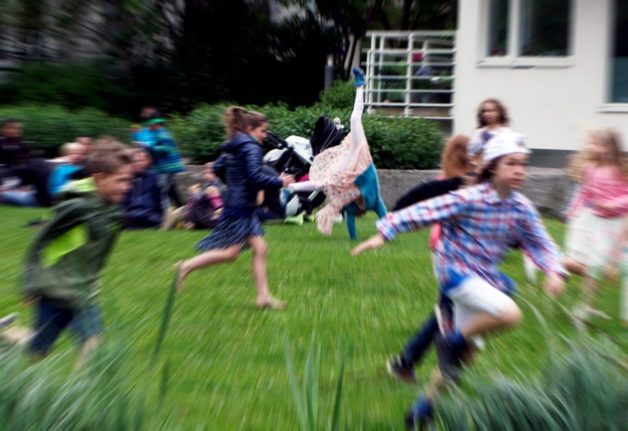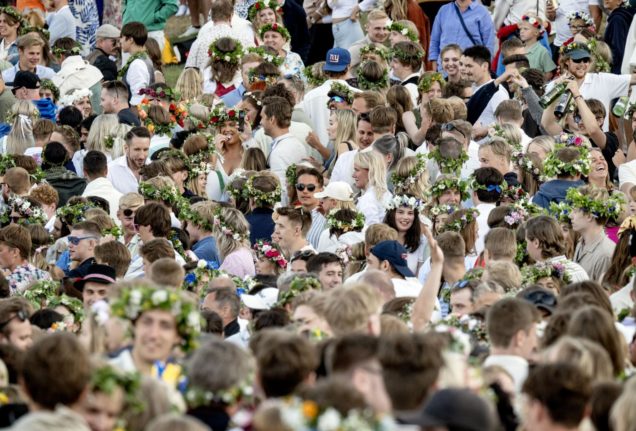Swedes love to sing and nowhere is this more true that an a skolavslutning, literally “school-finishing”, ceremony, which were held this week across Sweden, with schools in Stockholm, Gothenburg and Malmö all finishing on the same date.
Every single one of the ten classes in a Swedish primary school, from the preschool all the way up to the year nines, will each sing a song, sometimes with all the parallel classes in each year singing together, sometimes each giving their own performance.
It’s imperative as a parent that you attend, unless you want your child to be the one scanning the audience forlornly, slowly realising that they are the only one in their class with no one there to watch them.
In most Swedish families, one or both parents will take a day or half-day off work, as it’s traditional that parents take the children to a park or for a celebratory fika afterwards.
Parents tend to dress up a bit, not in a suit although this is absolutely acceptable, but definitely a bit smarter than what you would wear on a normal day. Punky, alternative parents will come out in their full regalia.
Normally, the songs will be vaguely contemporary – although my son’s class a few years back “rickrolled” the parents with a rendition with a rendition of the 1987 hit Never Gonna Give You Up by the English singer Rick Astley.
Pre-school and first year classes across Sweden will often opt for Sommarsången from the Pippi films, which contrasts deliberately trite lyrics about how trees are “beautiful”, grass is “green”, flowers “pretty”, the sun “sunny” and the water …errr…”wet”, with Pippi’s own off-beat celebration of “sweet little mosquitoes” and freckles.
Many schools – maybe all schools – have a small, permanent outdoor stage in the schoolyard where these performances take place, with a hundred or more parents standing around. There will normally be some banners hung up, or some sort of bunting.
As a parent, this is not the time to bring up any serious school business. You thank your child’s teachers, tell them how grateful you are for their efforts, and wish them a good summer. You do not bring up something from the parent-teacher meeting, or re-air your complaints about the school food, trouble getting special lessons in your own language, or your child’s problematic relationship with a classmate.
In most classes, someone will have coordinated a present for the teachers after a short discussion on a parents’ Facebook or WhatsApp group: it’s normally chocolate, flowers, soap or some sort of voucher. If no one has done this a week before the date, by all means start the ball rolling yourself.
The head teacher, and maybe the teachers in charge of the lower-school, middle-school, and upper-school, might make very short speeches – but not the hand-on-heart, tear-filled ones Swedes give at weddings and important birthdays, unless, that is, they are retiring or moving to another school.
Finally there will be awards given out.
At my children’s school, awards went to the representatives in the student council (elevråd) from each class, for those who had excelled in värdefrågor, literally “value issues”, by working to include everyone in the class and increase harmony, to all the final year students who got over 300 points, to the “aesthete” and “writer” of the year.
A prize went to the pupil who had made the most positive changes over their time, “from clueless young lad to fine young man” (which seemed like a booby prize). All of these last awards went to those in the final, ninth, class.
Once all this is over, music will continue pumping out of the PA as pupils, parents and teachers talk, mingle and hug each other, and say goodbye for the summer – or in the case of the leavers, for good.



 Please whitelist us to continue reading.
Please whitelist us to continue reading.
Member comments